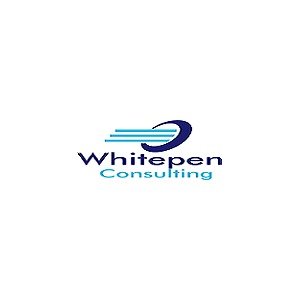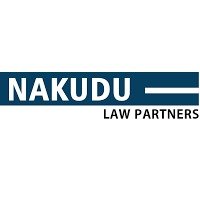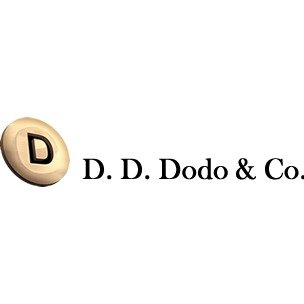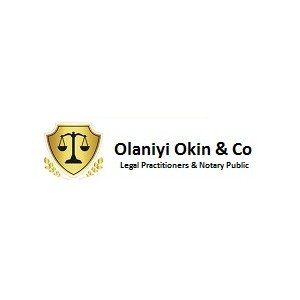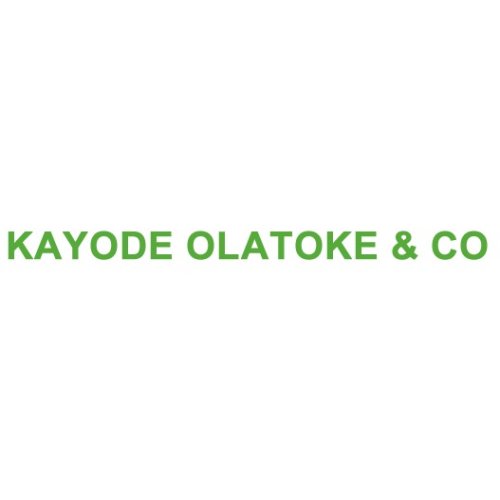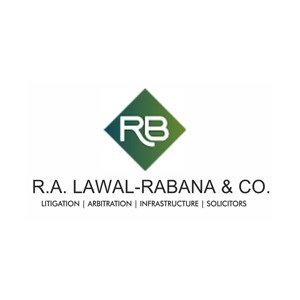Best Public-Private Partnerships (PPP) Lawyers in Nigeria
Share your needs with us, get contacted by law firms.
Free. Takes 2 min.
Or refine your search by selecting a city:
List of the best lawyers in Nigeria
Legal guides written by Adeola Oyinlade & Co:
- Procedure and Requirements for Work Permit and Visas in Nigeria
- The Step-By-Step Procedure of How to Apply for Microfinance Bank License Online in Nigeria
- How to Ensure the Smooth Recognition and Enforcement of Foreign Judgments in Nigeria
About Public-Private Partnerships (PPP) Law in Nigeria
Public-Private Partnerships, commonly referred to as PPP, are collaborative agreements between government entities and private sector companies to develop, finance, operate, and maintain infrastructure or deliver public services. In Nigeria, PPP arrangements are increasingly used to bridge gaps in funding and expertise for major public projects such as roads, power plants, healthcare facilities, and schools. The core aim is to leverage private sector efficiency, technical knowledge, and capital, while ensuring that the government retains adequate oversight and the public benefits from improved infrastructure and services.
Nigerian PPP law consists of statutes, regulations, and sector-specific policies that create frameworks for these collaborations. At the federal level, the Infrastructure Concession Regulatory Commission (ICRC) is the main regulatory body overseeing PPPs, while various state governments have established similar laws and agencies for projects within their jurisdictions.
Why You May Need a Lawyer
Engaging in a PPP venture in Nigeria often involves complex negotiations, regulatory compliance, risk allocation, and contract drafting. Both the government and private sector players benefit from the expertise of lawyers who specialize in this legal area. Here are some common scenarios where legal advice is crucial:
- Understanding and navigating the regulatory landscape for PPPs in Nigeria
- Drafting, negotiating, and reviewing concession agreements and other contractual documents
- Advising on procurement procedures, transparency, and fair competition
- Handling disputes that arise between PPP partners or from third parties
- Ensuring compliance with federal, state, and sector-specific laws and regulations
- Assisting with financial structuring, risk assessment, and mitigation
- Guiding foreign investors through local content requirements and investment protections
Local Laws Overview
PPPs in Nigeria are governed by a mixture of federal and state laws. Key aspects to be aware of include:
- The Infrastructure Concession Regulatory Commission (Establishment, Etc.) Act, 2005, which establishes the ICRC to regulate PPP contracts at the federal level
- The Public Procurement Act, 2007, which sets rules for competitive and transparent procurement in public sector projects
- Sector-specific regulations in areas such as energy, transport, water, and health
- State-specific PPP laws and agencies, for projects within state jurisdictions
- Requirements for feasibility studies, value-for-money assessments, and environmental impact assessments
- Rules on dispute resolution, with many PPP agreements including arbitration or mediation provisions
- Local content requirements, encouraging the use of Nigerian goods, services, and workforce
- Tax incentives and duty exemptions that may be available for qualifying PPP projects
Keeping track of these diverse legal requirements and ensuring compliance is vital for the success and sustainability of any PPP project in Nigeria.
Frequently Asked Questions
What is a PPP in Nigeria?
A PPP is a partnership between the government and a private entity, aimed at financing, constructing, and operating infrastructure or providing public services for a defined period.
Who regulates PPPs at the federal level in Nigeria?
The Infrastructure Concession Regulatory Commission (ICRC) oversees federal PPPs, ensuring compliance with relevant laws and facilitating the approval process.
Are there PPP opportunities at the state level?
Yes, many states have developed their own PPP policies and agencies to manage regional infrastructure projects, guided by state legislation.
What sectors commonly use PPPs in Nigeria?
PPPs are popular in transport, energy, water supply, healthcare, education, and housing sectors, among others.
How are PPP contracts awarded?
PPP contracts are typically awarded through a transparent, competitive bidding process as outlined in the Public Procurement Act and related policies.
What are the main risks in PPP projects?
Risks can include financial losses, regulatory changes, delays, political interference, and unforeseen operational issues. Legal advice helps in structuring agreements to allocate these risks appropriately.
Do PPP agreements require government guarantees?
Not all PPP projects involve government guarantees, but in some cases, guarantees or payment support may be provided to enhance project bankability.
Is local content required in PPP projects?
Yes, several laws and guidelines encourage or require the use of Nigerian labor, materials, and services in PPP projects, supporting local industry.
How are disputes in PPPs resolved?
Most PPP agreements include provisions for dispute resolution mechanisms such as mediation or arbitration, in addition to or instead of court litigation.
Can foreign investors participate in Nigerian PPPs?
Yes, Nigeria welcomes foreign participation in PPP projects, subject to compliance with investment, immigration, and sector-specific regulations.
Additional Resources
For further information and support, consider the following resources:
- Infrastructure Concession Regulatory Commission (ICRC) - the main federal authority for PPP policy and project approval
- Federal Ministry of Finance, Budget, and National Planning - involved in funding and fiscal policy
- State-level PPP units or agencies, such as Lagos State Office of Public-Private Partnerships
- Nigerian Investment Promotion Commission (NIPC) - useful for foreign investors
- Nigerian Bar Association and recognized law firms specializing in PPPs
- Sector-specific regulatory bodies, for example, Nigerian Electricity Regulatory Commission (NERC) and Federal Road Maintenance Agency (FERMA)
Next Steps
If you are considering involvement in a PPP project in Nigeria, it is strongly advised to consult with a lawyer experienced in PPP arrangements. Legal professionals can help you:
- Assess your eligibility or suitability for a PPP project
- Understand all relevant regulatory requirements and compliance issues
- Draft, review, or negotiate partnership agreements and other necessary contracts
- Identify, allocate, and mitigate risks associated with your project
- Liaise with government bodies and secure necessary permits or approvals
To begin, consider gathering any relevant documentation about your project idea, partners, and objectives. Research lawyers or law firms with strong experience in PPP projects in Nigeria, and arrange a consultation. Early and comprehensive legal advice can prevent costly mistakes, ensure regulatory compliance, and increase the chances of your PPP initiative being successful.
Lawzana helps you find the best lawyers and law firms in Nigeria through a curated and pre-screened list of qualified legal professionals. Our platform offers rankings and detailed profiles of attorneys and law firms, allowing you to compare based on practice areas, including Public-Private Partnerships (PPP), experience, and client feedback.
Each profile includes a description of the firm's areas of practice, client reviews, team members and partners, year of establishment, spoken languages, office locations, contact information, social media presence, and any published articles or resources. Most firms on our platform speak English and are experienced in both local and international legal matters.
Get a quote from top-rated law firms in Nigeria — quickly, securely, and without unnecessary hassle.
Disclaimer:
The information provided on this page is for general informational purposes only and does not constitute legal advice. While we strive to ensure the accuracy and relevance of the content, legal information may change over time, and interpretations of the law can vary. You should always consult with a qualified legal professional for advice specific to your situation.
We disclaim all liability for actions taken or not taken based on the content of this page. If you believe any information is incorrect or outdated, please contact us, and we will review and update it where appropriate.
Browse public-private partnerships (ppp) law firms by city in Nigeria
Refine your search by selecting a city.







